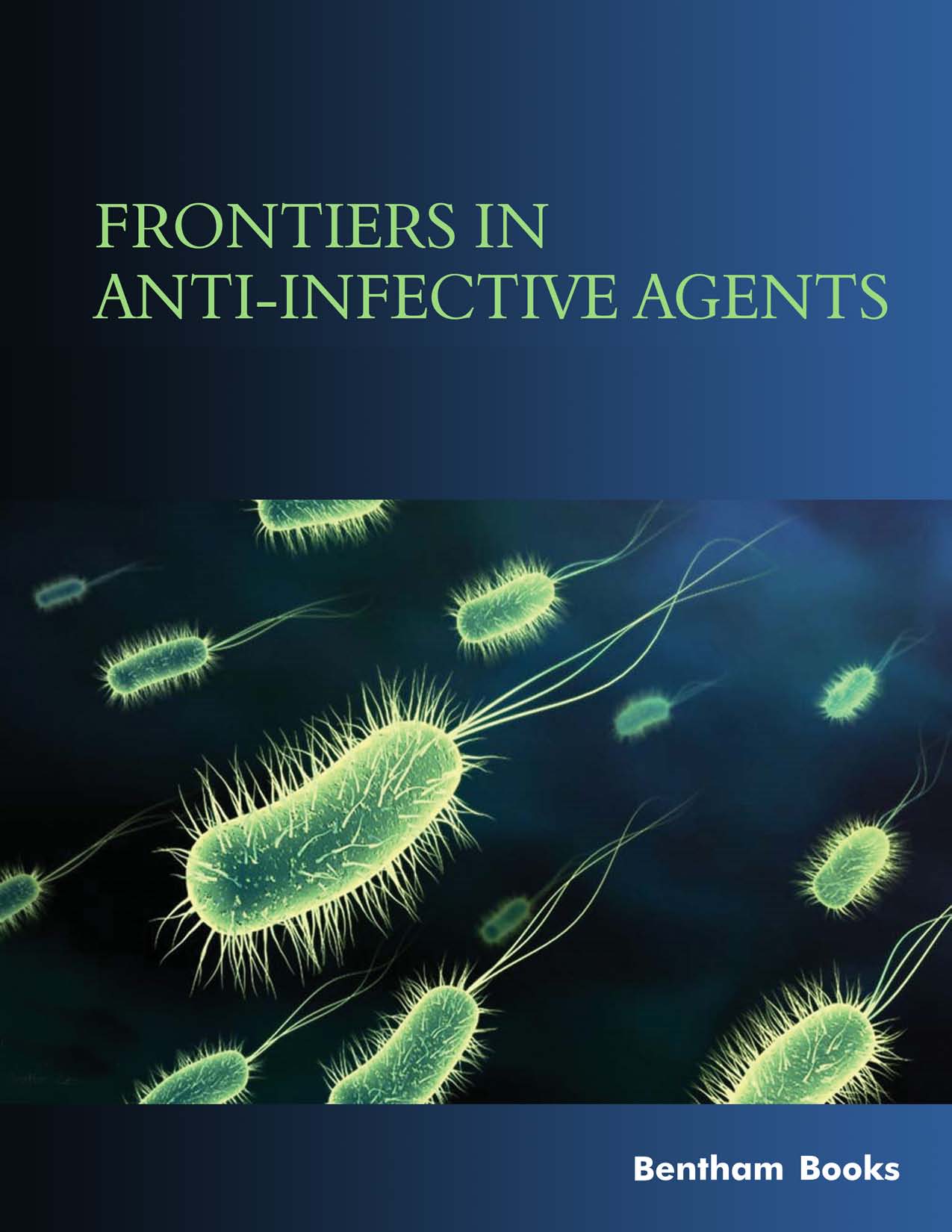Frontiers in Anti-Infective Agents

Frontiers in Anti-Infective Agents is a book series that focuses on current and new antibiotics and vaccines. The series highlights the challenges faced by healthcare workers around the globe when facing epidemics caused by life threatening pathogens along with the measures being taken to combat these challenges. The series is essential reading for all involved in infectious disease research including microbiologists, medical professionals, epidemiologists and life science researchers.
Filter :
Publication date
Publication
Content type
Frontiers in Anti-Infective Agents: Volume 6
Anti-infective agents are a distinct class of pharmacologically important molecules that have served mankind in different capacities to combat life-threatening pathological conditions. They include antibacterial antifungal antiviral antituberculosis antimalarial and urinary anti-infective agents. However evolutionary changes adaptations and the development of new strains of pathogenic microorganisms have reduced the therapeutic efficacy of existing drugs thus limiting their clinical utility over the years.
Frontiers in Anti-Infective Agents Volume 6 is a collection of notable research efforts successful anti-infective drug development programs and a comprehensive overview of successful and unsuccessful clinical trials conducted in this domain. This volume continues from the last one with interesting reviews on 1) "Reverse Vaccinology" for vaccination design using computational data to identify vaccine targets 2) leptospirosis 3) phage therapy for bacterial infections 4) quorum sensing inhibitors from natural products and 5) nitrogen and oxygen-based heterocyclic compounds that can act as anti-infective agents. The volume therefore covers a range of frontier topics on anti-infective research and development.
This compilation is a timely reference for postgraduate scholars and researchers seeking updates in specific areas of anti-infective drug development. Allied healthcare professionals (clinical and public healthcare professionals) can also benefit from the information presented within.
Pregnancy and Anti-Infective Agents
This concise clinical reference facilitates health consultants and professionals for determining treatment options for some common prenatal and postpartum infections during pregnancy and the puerperium in patients.
Key Features
- Presents 9 organized easy to read chapters on anti-infective agents for pregnant patients
- Covers pharmacokinetics and pharmacodynamics of relevant anti-infective agents
- Includes information on classification and safety of anti-infective agents
- Includes treatment of urinary tract infections
- Covers medications for sexually transmitted diseases including a complete section dedicated to HIV medication
- Provides information about vulvovaginal infections
- Covers the treatment of toxoplasmosis in pregnancy
- innovates with information about herbal remedies for infection for patients during pregnancy and breastfeeding
Pregnancy and Anti-Infective Agents is therefore a valuable handbook that enables quick consultation on safe antibiotics for the treatment of a variety of infections in pregnancy.
Anti-infective Research and Development: Updates on Infection Mechanisms and Treatments
This volume of Frontiers in Anti-Infective Agents provides updates on the most recent studies about anti-infective agents their mechanism of action the relevant molecular targets and their implication in the development of novel antibiotics that have properties similar to their corresponding compounds of natural origin. The initial chapter covers the mode of action of natural antimycobacterial compounds such as nordihydroguaiaretic acid α-mangostin and allicin as well as antimicrobial peptides and their role in the innate and adaptive immune response leading to the decrease of microbial resistance. This is followed by updates on tuberculosis treatment concerning the immunological role of cells (airway epithelial cells macrophages neutrophils and T cells) along with their products (chemokines cytokines) and other processes such as autophagy that influence the outcome of the host immune response to the infection. Contributors have also reviewed the latest knowledge in the cellular and molecular mechanisms that trigger a protective immune response and the identification of the molecular targets for vaccine development all of which are a key priority to develop control measures against Babesia species like Babesia bovis and Babesia bigemina. Additionally the neuro-endocrine and neuro-immune mechanisms behind host responses against stress and environmental stimuli during infections are also covered in separate chapters. The volume also provides updates related to Helicobacter pylori pathogenesis. The reviews presented in Anti-infective Research and Development provide timely updates for scholars and professionals associated with the field of antimicrobial research and development.
Current Perspectives on Anti-Infective Agents
The volume is a comprehensive documentation on major infectious diseases from tropical countries which pose a serious threat to global healthcare programs. These include diseases such as tuberculosis AIDS leishmaniasis (kala-azar) elephantiasis malaria leprosy various fungal disorders and emergent viral diseases. Due to the widespread use of antibiotics there is an emergence of drug-resistant pathogens in many regions. Hence there is a need to search for novel cost-effective bioactive compounds that demonstrate high efficacy and low toxicity in human cells from unexplored ecosystems to combat emerging drug-resistant pathogens. Chapters of this volume focus on the pathogenesis and etiology of each of the mentioned diseases updated WHO reports wherever applicable conventional drugs and their pharmacokinetics as well as new approaches to develop anti-infective agents.
The authors also present a detailed report on superbugs (multi-drug resistant pathogens) and new measures being taken up to eradicate them. Information about new antimicrobials (bioactive peptides and silk protein sericin) and the approaches taken by scientists and healthcare professionals for successful targeting of these molecules for human medicine. This volume is essential for general readers healthcare professionals researchers and academicians actively involved in research on infectious diseases and anti-infective therapeutic drugs.
[Series Introduction]
Frontiers in Anti-Infective Agents is a book series that focuses on current and new antibiotics and vaccines. The series highlights the challenges faced by healthcare workers around the globe when facing epidemics caused by life-threatening pathogens along with the measures being taken to combat these challenges. The series is essential reading for all involved in infectious disease research including microbiologists medical professionals epidemiologists and life science researchers.
